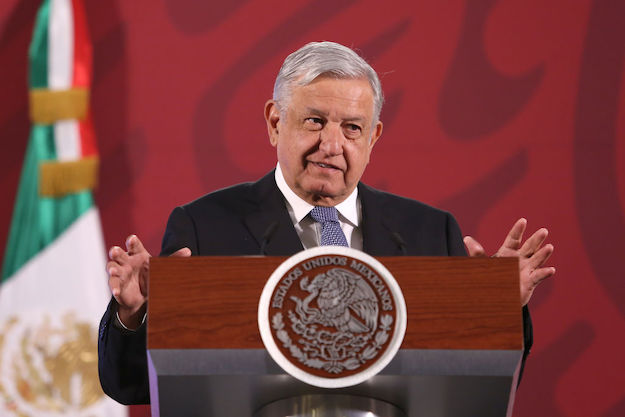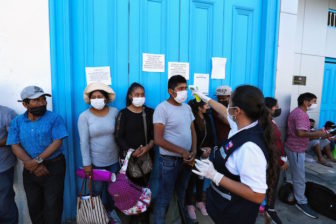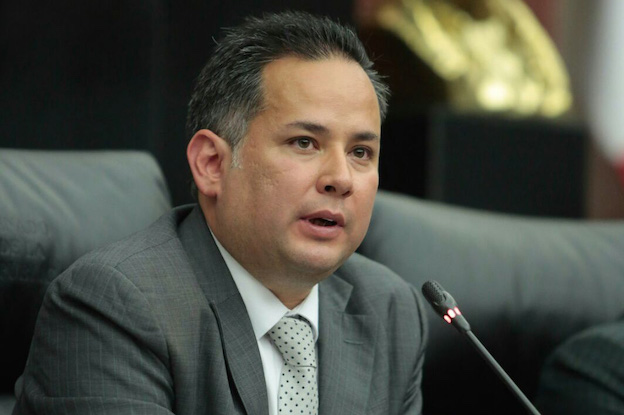This article is adapted from AQ’s special report on migration
Several factors have made Latin America better at detecting grand corruption, but one has been particularly transformative: progress in anti-money laundering (AML). All major anti-corruption operations over the past decade either began with or heavily relied on financial intelligence — from Brazil’s Lava Jato and its subsequent Odebrecht investigations in several countries, to campaign financing cases in Chile or prosecutions against high-ranking officials in Guatemala.
Latin America is now incomparably more capable of “following the money” — gathering financial data, flagging suspicious activities and sharing information internally and with foreign counterparts — than it was ten years ago. Most countries have stronger enforcement agencies and better laws. New technologies in areas like data analytics and communications have helped them leapfrog. And businesses in the region are being forced to adapt to a new reality of enhanced compliance requirements, heavier penalties for misbehavior and less impunity.
But precisely because of its unprecedented power, AML in Latin America is now facing a new risk: politics. In the two largest economies in the region — Mexico and Brazil — agencies in charge of financial intelligence are worryingly entering into the political arena, although in very different ways.
The political use of financial intelligence may bring short-term gains for AML institutions and some currently in power. Yet if not controlled, it will prove disastrous for the rule of law over the long run.
Under President Andrés Manuel López Obrador, Mexico’s AML landscape underwent a sweeping transformation. The Financial Intelligence Unit (UIF) – the agency in charge of detecting suspicious transactions – went from quasi-anonymity to becoming the tip of the spear in AMLO’s war on what he calls the pacto de corruptos (pact of the corrupt). Heads of AML agencies are usually inconspicuous bureaucrats, but the UIF director, Santiago Nieto Castillo, now receives more media attention than most Mexican ministers.
A former electoral prosecutor sacked by the previous administration, Nieto drastically expanded the UIF’s activities. For instance, the number of frozen accounts jumped from an average of 3,500 per year to over 12,000 in 2019. Meanwhile, Mexico passed draconian laws on tax fraud, making it a national security offense, and granted AML agents powers to forfeit and sell assets even before a first conviction.
Under AMLO, the UIF led several actions against high-profile targets — from former Pemex president Emilio Lozoya to Supreme Court Justice Eduardo Medina Mora. The president lauded these operations as proof of his seriousness about fighting graft — and indeed, evidence of corruption abounded in some cases. However, the names on the UIF’s target list have one thing in common: none of them are aligned with López Obrador. In fact, critics have pointed out that Nieto’s agency has failed to investigate officials involved in corruption scandals who happen to be close to the president, such as the national electricity company director, Manuel Bartlett, or the head of the ruling party, Yeidckol Polevnsky. Nieto has repeatedly denied accusations of political bias.
Also, the UIF’s methods are under increased scrutiny. Nieto frequently makes declarations about ongoing investigations, prompting Attorney General Alejandro Gertz Manero to publicly accuse “units in the government” of violating due process. The UIF’s director rejected the accusations and López Obrador intervened to stop the friendly fire.
“Nieto doesn’t do anything without first consulting with the president,” AMLO told the press, relaying self-incriminating evidence about the extent of his control over the UIF.
The battle over COAF
López Obrador would be right to say that before him, the UIF was not doing its job. In Brazil — where AML has also gotten surprisingly political under Jair Bolsonaro — the story is different.
Launched in 1998, Brazil’s financial intelligence unit, COAF, has played a critical role in all major anti-corruption investigations since, including Lava Jato. Bolsonaro was elected on the promise of increasing the number of employees and transferring the agency from the Economy Ministry to the Justice Ministry, formerly led by Sérgio Moro. Things began to change in late 2018, when COAF flagged suspicious activities involving Bolsonaro’s eldest son, Senator Flávio Bolsonaro, who was accused of getting kickbacks from his staffers.
In July, Senator Bolsonaro asked the Supreme Court to dismiss COAF’s findings. Chief Justice Dias Toffoli responded with a devastating unilateral ruling: he froze virtually all of COAF’s activities under the argument that they violated the “right to privacy.” The suspension, which lasted for four months, was part of a broader political rapprochement between Toffoli and President Bolsonaro. And in August, the head of COAF — an accomplished technocrat originally picked by Moro — was sacked.
Meanwhile, Congress and Bolsonaro began a bitter fight over COAF, with lawmakers largely emerging as the winners. The agency was finally put under the Central Bank with small changes to its internal structure, including fewer restrictions on who can join its board. One senior prosecutor argues that a central bank should not be in charge of AML and COAF’s new structure could increase possible conflicts of interest. “We went through all these political fights and I fear that the result could be a weaker COAF.”
So how can Mexico, Brazil and others in the region control political interference in AML?
One critical step is to make countries adopt international standards and collaborate with bodies such as the Financial Action Task Force (FATF) and the Egmont Group, which congregate financial intelligence units from across the world. In a recent panel at the Americas Society/Council of the Americas, Ecuadorian Attorney General — and former head of Ecuador’s AML agency — Diana Salazar argued that inter-governmental organizations can provide emerging countries crucial assistance in assessing risks and developing regulations. In Brazil, criticism from the OECD served as ammunition against Toffoli’s decision.
Also, independent AML agencies depend on strong rules, well-trained technical staff and broad oversight. In this sense, Brazil is in a better position than Mexico. Santiago Nieto’s power, prestige and proximity to the president have given a boost to the UIF. Yet long-term improvement will require more human capital in the UIF’s bureaucracy and more distance vis-à-vis the president’s office. Congress also needs to be more involved, and must make sure that the UIF focuses entirely on its mission: flagging suspicious financial activities based on technical criteria. Investigating the evidence produced by financial intelligence is the job of prosecutors or police, not of AML agencies.
More than anything else, stronger democracies and institutions propelled Latin America’s progress in AML. These elements will continue to be essential for financial intelligence in the age of cryptocurrencies, encrypted messages and new forms of bank secrecy.






